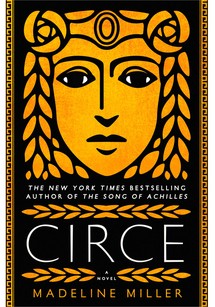In
Madeline Miller's spellbinding second novel,
Circe, the golden goddess of the
title knows that history will remember her unkindly: "Humbling women seems
to me a chief pastime of poets. As if there can be no story unless we crawl and
weep." Readers familiar with
The Odyssey may recall Circe only
as the beguiling witch Odysseus beds while making his way back to his faithful
wife, Penelope—little more than a cautionary tale for men about
feminine treachery. But in Miller's conception, Circe is the hero of her own
epic.
Though she's the daughter of the mighty sun god Helios,
Circe has never been at home amid the Titans who rule cruelly over the mortal
world. Even as a young girl, and despite being gifted with potions and spells—among
them the ability to turn sailors into pigs—she's drawn to the charms
of humans, warts and all. When the sea brings Odysseus to her shores, their
romance is not a struggle for dominance, but a smoldering brew of eroticism and
mutual understanding. As they part for good, Circe reflects, "He showed me
his scars, and in return, he let me pretend I had none." Through each of
her suitors, be they mortal or divine, she evolves as a woman owning both her
sexuality and her vulnerability, which are sometimes one and the same.
Miller has created a daring feminist take on a classic
narrative; although the setting is a mystical world of gods, monsters, and
nymphs, the protagonist at its heart is like any of us. A free woman, the
author seems to be saying, must be willing to forsake the trappings of
birthright and rank in order to claim her destiny, whether thousands of years
ago or today.


